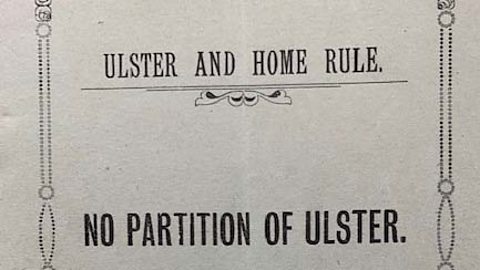Democracy and Revolution
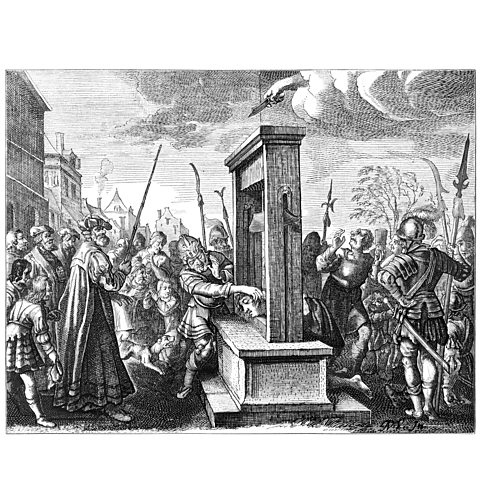
In the 21st century there are a number of ideas and freedoms that we take for granted.
Ideas like democracy - which means that we are able to choose our own leaders.
Freedoms such as the right to:
- express our opinions
- practice our religion
- be treated equally by others.
These ideas are relatively new in the world. In their modern forms they came about as a result of two events, the American Revolution in 1776 and the French Revolution in 1789.
The French Revolution would have an enormous impact in Ireland and on Belfast in particular.

Liberty, Equality, Fraternity
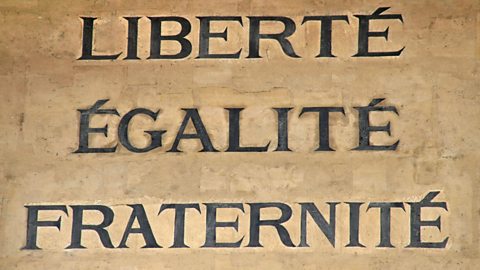
The French Revolution meant that France would no longer be ruled by the King and thearistocracy Historically, the members of the highest level/class in certain societies. It was to be governed along democratic ideas. These ideas were best summed up in the famous three word slogan of the revolution - libertyA belief in the freedom to act in a way that does not cause any harm to others. equalityTThe idea that all people should all be treated equally/the same. fraternityThe idea of friendship and support amongst people.
The revolution was also quite violent. The King was forcibly overthrown and later executed on the guillotineAn execution device that used a falling blade to cut off the victim’s head.. Many more aristocrats would share this fate.
The revolution sent shockwaves across the monarchies and governments of Europe. They were determined that the old order, where they stayed in charge and took all the decisions, should stay in place.
To them democracy was not rule by the people but rule by a mob and an extremely dangerous idea. They would eventually find themselves at war with revolutionary France.
Britain would be part of this attempt to stop France. It was determined to stamp out the spread of the dangerous ideas behind democracy. However, to use a modern term, those ideas were about to ‘go viral’ throughout Europe. Ireland would be no exception

Why Belfast?
Key points why Ireland was so influenced by the French Revolution:
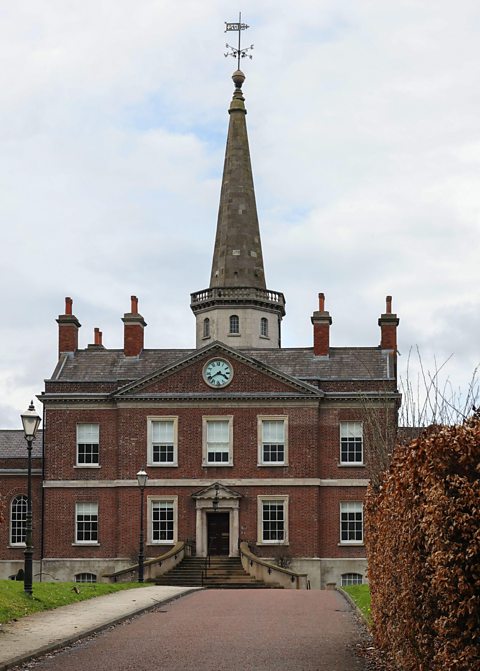
- Belfast in 1789 was a very forward thinking place. Much of this was to do with the fact that it had a large population of Presbyterians.
- Presbyterians were progressive and were interested in the ideas of liberty and tolerance. They had strong links with the universities in Scotland which were promoting a lot of new, more enlightenedInfluenced by the ideas of the Enlightenment. A set of beliefs that emerged in the 17th and 18th centuries which included ideas such as equality, fraternity, liberty, tolerance and belief in constitutional government. ideas.
- They wanted to changes the system of government because at that time only Anglicans (Church of Ireland) were permitted to sit in the Irish parliament. Presbyterians could vote but could not be elected.
- Many of the people of Belfast were very well informed about the issues and debates of the day because Belfast had a number of newspapers. The Belfast News Letter began in 1737 and today is one of the oldest newspapers in the world.
- There were political clubs such as the Northern Whig and there were attempts to help the poor into employment through the Belfast Charitable Association, located at Clifton House.
- Dr William Drennan, a Belfast-born Presbyterian and writer, explored the new ideas in articles and pamphlets and in October 1791 he sent an invitation to a young Dublin lawyer called Theobald Wolfe Tone to be involved in a new group dedicated to the ideas of democracy and the French Revolution – The Belfast Society of United Irishmen.

Video: The French Revolution and Belfast
Max Heartrate explains how Belfast got embroiled in the ideas of the French Revolution.
DIRECTOR: Standby on the floor.
DIRECTOR: Coming to you camera two.
DIRECTOR: Cue on two.
DIRECTOR: Mix-through.
DIRECTOR: Clear the floor.
MAX: Here we go.
MAX: I’m Max Heartrate and this is Knowledge Express. Information faster than a proton in a hadron collider. And today’s topic is…
MAX: The French Revolution in Belfast!
MAX: I know what you’re saying, the French Revolution didn’t happen in Belfast.
MAX: Ah, but in a funny way it did!
MAX: It’s 1789 and the people of France are overthrowing the monarchy and government in the name of liberté, égalité and fraternité – that’s freedom, equality and brotherhood to you and me. OK, it didn’t end all that well but the principle’s a good one.
MAX: Meanwhile in Belfast Henry Joy McCracken, his sister Mary Ann, Thomas Russell, Samuel Neilsen and many others like what they are hearing from France. They set about promoting the radical concept that regardless of religion, beliefs or wealth, everyone should be equal. Also, that it would be good to have an Ireland that was united by this principle without the British constantly butting in and doing things their way. Who could argue with that? Eh, the British.
MAX: In fact, they dislike the idea so much that they decide to crush these so-called ‘United Irishmen’ who, by 1798, have enough support to stage a rebellion with the French army lined up to help them out.
MAX: As with so many good ideas that resort to violence it got messy. Poor training, lack of weapons, and bad communication and planning, meant the rebellion was easily defeated and the United Irishmen’s hope of founding a secular, independent, democratic Irish Republic ended in total defeat, leaving them – as we would say up here “Absolutely scundered!”
Quiz: How much do you know?
More on Rights and the Rule of Law
Find out more by working through a topic
- count3 of 6
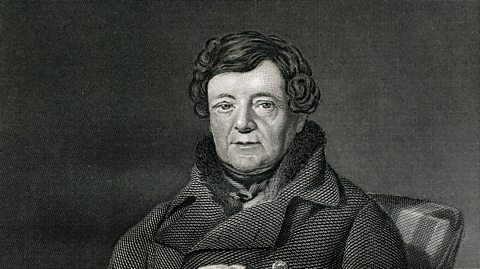
- count4 of 6
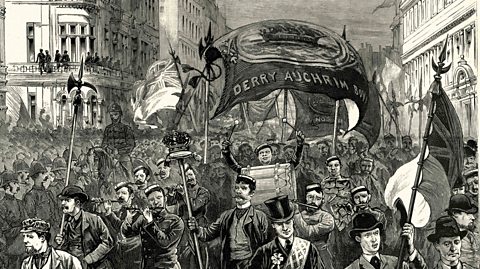
- count5 of 6
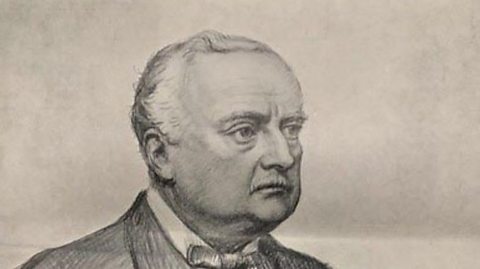
- count6 of 6
